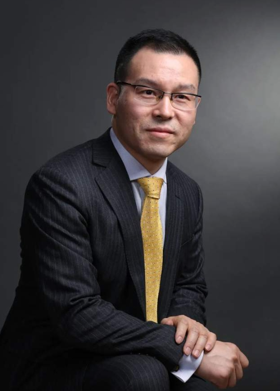Dr. Tian Jianhui (Meet Top TCM Oncologist in China)

Dr. Tian Jianhui
Chief Physician, PhD, Doctoral Supervisor, and Postdoctoral Advisor.
National Qi Huang Engineering Outstanding Clinical Talent in Traditional Chinese Medicine (5th batch), Leading Talent of the Shanghai Health Commission, Special Professor at Shanghai University of Traditional Chinese Medicine, and a disciple of National Medical Master Liu Jiaxiang.
Currently serving as the Director of the Tumor Clinical Medicine Center (concurrently the Head of Department of Oncology I) at Shanghai Hospital Affiliated to Shanghai University of Traditional Chinese Medicine, and Director of the Shanghai Institute of Oncology of Traditional Chinese Medicine. He has long focused on the prevention and treatment of tumor recurrence and metastasis, establishing the “Zheng Xu Fu Du” theory of tumor recurrence and metastasis, and advocating the “Regulating the Spirit to Treat Cancer” theory. Skilled in integrating traditional Chinese medicine, radiotherapy, chemotherapy, and biological therapies for the treatment of various malignant tumors such as lung cancer, ovarian cancer, cervical cancer, and colorectal cancer, as well as intractable diarrhea, insomnia, and other internal medical conditions, under the academic thought of “Supporting the Vital Qi to Treat Cancer.” He is particularly adept in treating respiratory, digestive, and gynecological tumors.
Serving as the Deputy Director of the Immunology Branch of the Chinese Association of Traditional Chinese Medicine, Standing Committee Member of the Tumor Branch of the Chinese Association of Traditional Chinese Medicine; Deputy Director of the Tumor Branch of the Traditional Medicine Engineering Association; Co-Chair of the Western Shanghai Traditional Chinese Medicine Tumor Special Disease Alliance. He has published over 150 articles domestically and internationally, undertaken 5 national natural science foundation projects, and conducted in-depth research on the immunoregulatory mechanisms of lung cancer.
Interviw with Dr. Tian JIanhui
Ye Wen Ren Yi: What is the significance of proposing the concept of "Zheng Xu Fu Du" (Deficiency of Vital Qi and Latent Toxins)?
Director Tian Jianhui: The significance of "Zheng Xu Fu Du" lies in integrating the "vital qi" philosophy emphasized in Huangdi Neijing (The Yellow Emperor's Classic of Internal Medicine) with modern advances in tumor immunology. This concept establishes a pathogenic mechanism theory for tumor recurrence and metastasis, applying the TCM principle of "preventive treatment" to the field of tumor relapse. It actively explores innovative approaches to overcome bottlenecks in improving tumor treatment efficacy, ultimately benefiting patients.
Ye Wen Ren Yi: How do you envision the future of TCM after the pandemic?
Director Tian Jianhui: The three-year pandemic has significantly enhanced public recognition of TCM. On one hand, people witnessed the widespread use of TCM methods and products during the crisis. On the other hand, the integration of TCM and Western medicine has accelerated. More importantly, TCM's role in diverse therapeutic fields is increasingly accepted by society. Ultimately, both TCM and Western medicine share the same goal—healing patients. The pandemic has merely hastened TCM's acceptance by the public and society.
Ye Wen Ren Yi: How can we extend the vitality of TCM?
Director Tian Jianhui: TCM’s vitality is inherently robust. While some may question its theoretical framework, TCM is an integral part of Chinese culture, which itself is a cornerstone of 5,000 years of global civilization and human heritage. TCM must evolve by integrating with advancements in global medical science—this is the inevitable trend of progress. Our mission is to embrace this trend, not merely through combining TCM with Western medicine, but through genuine fusion. Even in Western countries, TCM herbs and methods are gradually being incorporated into their healthcare systems. This aligns with the natural law of development—Dao Fa Zi Ran (the Tao follows nature).
Ye Wen Ren Yi: What distinguishes TCM integrated with Western medicine and scientific methods in treating tumors?
Director Tian Jianhui: TCM emphasizes a holistic view of harmony between humans, nature, and their environment. We fully support Western medical methods and incorporate them into our system, acknowledging Western medicine’s expertise in areas like basic research, surgical techniques, and drug delivery. Meanwhile, under TCM’s framework, we optimize the patient’s microenvironment and treatment process through its holistic philosophy. This helps patients build a harmonious internal and external environment, accelerating recovery and achieving a state of Tian Ren He Yi (harmony between humans and nature).
Ye Wen Ren Yi: How do you explain the "Tiao Shen Zhi Ai" (Regulating Spirit to Treat Cancer) concept to patients?
Director Tian Jianhui: The notion of "spirit" might seem abstract, but Huangdi Neijing stated over 2,000 years ago: "Those who possess spirit thrive, while those who lose it perish." It highlights the unity of body and spirit as key to health and disease treatment. In oncology, emphasizing "spirit regulation" holds practical significance: it underscores the core role of "spirit" in health and recovery, empowering patients to actively engage in their own treatment. This approach revitalizes the TCM philosophy of "human-centered care" and holistic healing of body and mind.
Ye Wen Ren Yi: Many discuss longevity—what advice do you have?
Director Tian Jianhui: Ancient TCM texts outline three pillars of longevity. First, Tian Shou Guo Du—hereditary longevity, where family longevity genes predispose one to a long life. Second, Shen Qi You Yu—preserving kidney qi by avoiding overexertion and maintaining healthy habits. Third, Qi Mai Chang Tong—ensuring smooth qi and blood flow through emotional balance and physical activity. In essence: nurture your innate vitality, protect your body, and cultivate harmony in mind and energy.

